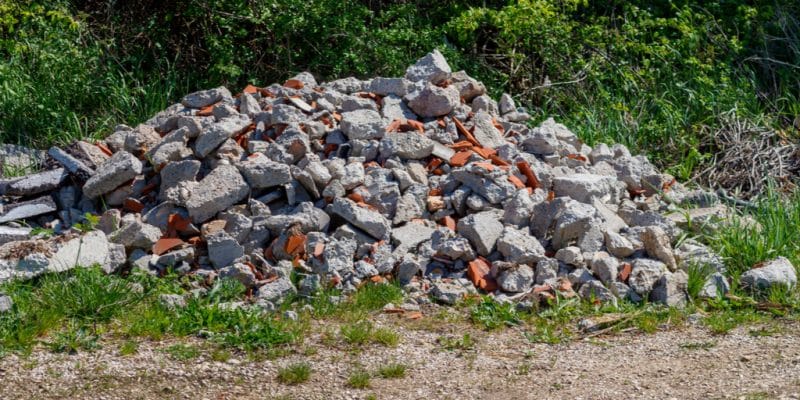The Tunisian Ministry of the Environment plans to launch a downloadable application on smartphones to report the anarchic dumping of demolition waste in Tunisia. In 2017, there were more than 290 demolition waste dumps throughout the country.
Unlike developed countries where 80% of demolition waste is recycled, Tunisia is lagging behind in terms of managing the waste from its construction sites. But the country wants to catch up with a new mobile application. This is a phase of the RE-MED project.
Launched last October and piloted by Cerema (Centre for studies and expertise on risks, environment, mobility and development), this project covers four Mediterranean countries, namely France, Italy, Tunisia and Lebanon. The project will experiment with technologies to transform construction and demolition waste into a resource for building and maintaining roads in a sustainable manner in the Mediterranean. Within this framework, the Tunisian and Lebanese Ministries of Environment wish to develop the use of recycled aggregates for road construction, and thus hope to recycle 20% of aggregates from construction sites.
How the application works
Once downloaded to a smartphone, the application allows the user to report the position of demolition waste via a geolocation system linked to an information platform within the Tunisian Ministry of the Environment. “Municipalities or contractors who are interested and already involved in the RE-MED project will then be informed so that they can take charge of the removal of this waste and its recovery”, explains Chokri Nsib, the project manager at the Tunisian Ministry of the Environment.
The aim of this initiative is to raise awareness and involve citizens in the construction waste recovery project. It aims, in the medium term, to stop the landfills that disfigure the urban landscape in Tunisia. The project will enable the recycling of construction waste to be structured.
RE-MED will support “innovation for the development of the circular economy for sustainable construction in the Mediterranean”. Its vocation is to link research players and public and private operators in the construction waste value chain. The initiative, which will last 30 months (until 2023), will require an investment of €3 million, of which €2.7 million will be financed by the European Union.
Anne-Gaelle David (Intern)






